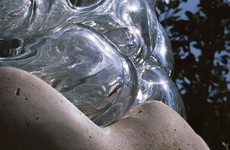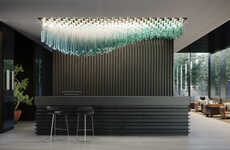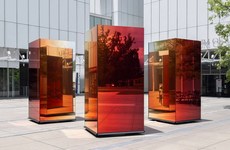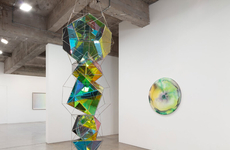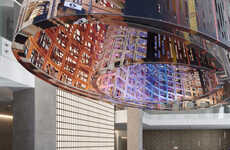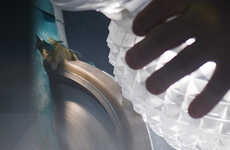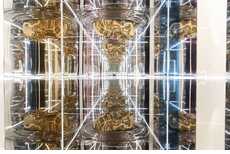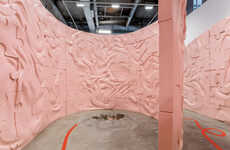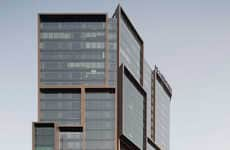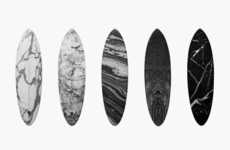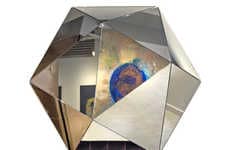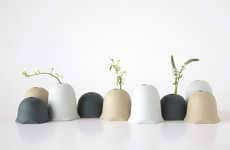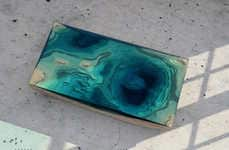
The Tectonics of Transparency Sculpture Changes with the Viewer
Vasiliki Marapas — November 7, 2014 — Art & Design
References: cristinaparreno & contemporist
Cristina Parreño Architecture designed the 'Tectonics of Transparency,' an architectural installation made entirely of glass, and currently on exhibit in Boston's International Design Center at MIT.
The installation is described as "an undulating structure which geometry changes in appearance according to the position of the viewer." Depending on your location in relation to the structure, the glass can appear either transparent or opaque. The light affects how the perforations on the screen appear, leaving the sculpture open to multiple interpretations. As a whole, the project is an investigative examination of perception, privacy and light.
The project is an ultimately an exploration of how spatial perception, structural performance and design relate to one another within the glass medium.
The installation is described as "an undulating structure which geometry changes in appearance according to the position of the viewer." Depending on your location in relation to the structure, the glass can appear either transparent or opaque. The light affects how the perforations on the screen appear, leaving the sculpture open to multiple interpretations. As a whole, the project is an investigative examination of perception, privacy and light.
The project is an ultimately an exploration of how spatial perception, structural performance and design relate to one another within the glass medium.
Trend Themes
1. Dynamic Transparency - The use of glass installations that change in appearance based on viewer perspective creates opportunities for dynamic transparency in architecture and design.
2. Perception-based Design - Architectural installations like the 'Tectonics of Transparency' highlight the potential for perception-based design approaches that consider how viewers interact with and perceive space.
3. Light-responsive Art - The incorporation of light into glass installations opens up new possibilities for creating art installations that respond and adapt to changing environmental conditions.
Industry Implications
1. Architecture - Architects can embrace the concept of dynamic transparency to create innovative designs that enhance spatial experiences for their clients.
2. Interior Design - Interior designers can incorporate perception-based design principles to create unique and visually stimulating spaces that respond to the viewer's perspective.
3. Art Installations - Artists specializing in glass installations can explore the use of light-responsive materials and techniques to create interactive and visually captivating artworks.
3.6
Score
Popularity
Activity
Freshness

